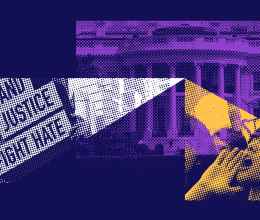
NEW JERSEY – New recommendations on how to use New Jersey’s share of opioid settlement funds were applauded by public health experts and civil rights leaders for their emphasis on expanding life-saving harm reduction services.
The initial set of recommendations by the New Jersey Opioid Recovery and Remediation Fund Advisory Council lists harm reduction expansion as their top priority. The Advisory Council recommends $12 million annually over the next two years to fund new harm reduction centers across the state.
“These recommendations are exactly the types of services we should be funding if we want to save as many lives as possible,” said Eddie Frierson, Director of Statewide Harm Reduction Services at the New Jersey Harm Reduction Coalition. “Harm reduction is the best tool we have to prevent overdose deaths, and we have mountains of evidence and personal experience to prove it. Now, we just need more dollars so every community in the state has access to this lifesaving care.”
In 2021, Governor Phil Murphy signed legislation to expand harm reduction services and remove restrictions that prevented new harm reduction centers from opening. Before the law was enacted, only seven harm reduction centers operated in the state.
“New Jersey, and especially dense cities and Black and brown communities that are facing years of disinvestment and wealth extraction, needs a dramatic increase in housing options, harm reduction services, and same-day access to evidence-based treatment.” said Elizbeth Ruebman, Policy Director at Newark Community Street Team. “The Advisory Council recommendations are an important start to addressing these urgent needs, needs that our Overdose Response Team witnesses every day as they respond to overdoses in Newark.”
In addition to prioritizing harm reduction expansion, the recommendations also provide for expansion of evidence-based medication for opioid use disorder (MOUD), community recovery centers, and increased shelter and housing voucher options for people living with a substance use disorder. The recommendations explicitly state that funded housing options should not require abstinence.
“It is encouraging to see the Council’s recommendations prioritize investment in the infrastructure needed to address substance use as an issue of public health,” said Summer Brancoccio, President and CEO of NCAAR - National Center for Advocacy and Recovery. “By funding evidence-based harm reduction measures, recovery support services, and improving access to those services, this report gives us a peek at the potential of New Jersey to not only address the harms of the opioid crisis, but of the historically punitive approaches that are often barriers to recovery.”
New Jersey was the last state in the nation to have a legal pathway for harm reduction services and invested 544.6 times more in criminalizing drug use than in harm reduction services over the past decade.
“Using these funds to open new harm reduction centers will save lives and set an example for other states to follow. This is where the data and evidence point to, and it’s a great way of addressing drug use through a lens of public health rather than punishment,” said Marleina Ubel, Senior Policy Analyst at New Jersey Policy Perspective (NJPP). “This shift in approach is worth celebrating, but we can’t forget that these types of services have been underfunded for decades, and they pale in comparison to how much we spend trying to arrest our way out of the overdose crisis. We need to continue funding more harm reduction services, even beyond what’s recommended here.”
"New Jersey policymakers have said time and again that drug use is a public health issue, not a criminal one, and expressed commitment to divesting from the drug war that has targeted Black and Latinx communities with militarized policing and exclusion from basic rights to housing, schools, and economic opportunity. These recommendations give policymakers the opportunity to put that commitment into action by funding essential public health infrastructure to support people who use drugs with evidence-based services," said Ami Kachalia, Campaign Strategist at ACLU-NJ. "This is exactly the direction New Jersey must head to treat drug use as the health issue it is, and to start building the robust harm reduction infrastructure that New Jersey needs to support residents who use drugs without punishment or criminalization."
The Advisory Council’s recommendations follow the best practices recommended by public health experts and civil rights leaders nationwide.
"We are pleased to see recommendations that prioritize investments toward public health, rather than public safety. New Jersey is taking a tremendous step in the right direction with this approach, however it is critical to ensure that the reinvestment of these funds center the Black communities most harmed by the failed war on drugs,” said Racquel Romans-Henry, Policy Director with Salvation and Social Justice. “Over the last ten years New Jersey has spent more than $11 billion to enforce harmful drug policies that disproportionately targeted Black communities. These communities deserve an equitable share of the more than $96 million being returned as a part of this settlement. Salvation and Social Justice will continue to stand in solidarity with and for those seeking reparations to the harms created by our state's racist drug war."
Harm reduction services are proven to reduce overdose deaths and connect people who use drugs to the treatment, support, and care they need without judgment. Harm reduction centers are an essential public health service that provide new, sterile syringes and safer use supplies, naloxone, overdose prevention counseling, and connections to substance use disorder treatment and community resources.



